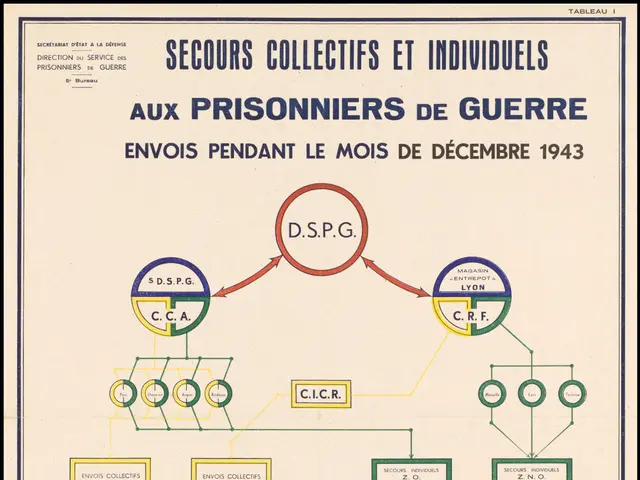Many individuals, primarily females, view menstruation as a subject that is socially unacceptable or embarrassing to discuss. - Menstruation generally considered a confidential matter by many females
Article
A significant number of women worldwide continue to view menstruation as a taboo subject, according to a Forsa poll. The survey revealed that 85% of respondents believe menstruation is seldom discussed in public, while 91% identified a need for increased information and reporting about the impact of menstruation and hormones on women's health.
Over half of the respondents (60%) track and document their own menstrual cycles, particularly among younger women aged 14 to 29, with approximately two-thirds doing so. Forsa, a polling institute, conducted the survey on behalf of the KKH Kaufmännische Krankenkasse, polling 1,002 women aged 14 to 50.
Recent years have seen an increase in initiatives aimed at destigmatizing the subject of menstruation, reflecting a growing commitment to open dialogue, education, and policy change on a global scale. In sports, high-performance athletes have broached the topic in interviews, shedding light on its impact on performance. In 2023, the German Football Association made headlines with the slogan "Let's talk Periods."
Advocacy and awareness campaigns, such as The Pad Project Pledge and World Menstrual Hygiene Day, focus on breaking taboos, improving access to menstrual health resources, and fostering open conversations. Community-based programs and gender-inclusive education are crucial components in shifting cultural attitudes towards menstruation.
Policy and product innovation efforts are also underway, with a focus on developing a global standard for menstrual products and integrating menstrual health into health and wellness programs. This includes ensuring free access to period products in schools and workplaces.
These initiatives collective aim to destigmatize menstruation, combining advocacy, education, policy, and innovation to create a more inclusive and supportive environment for all who menstruate.
- To foster a more comprehensive understanding of the intersection of menstruation, health, and wellness, there's a pressing need for employment policies to integrate menstrual health education and resources across various industries.
- In line with the global commitment to open dialogue about menstruation, science should play a pivotal role in policy-making, ensuring that research on menstruation's impact on women's health, mental health, and women's health in general, is incorporated into community policies and health-and-wellness initiatives.








